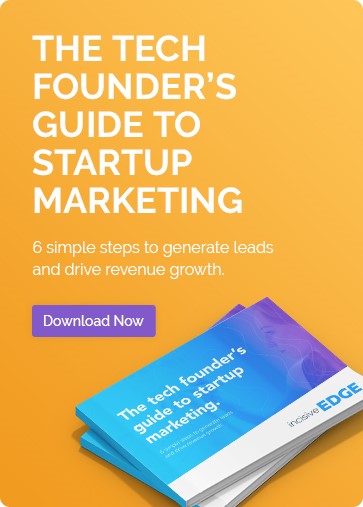How do you measure the success of your content marketing?
Indeed, do you know what content marketing success looks like?
We ask this second question because research shows that the majority of organisations are unclear on what this is and what a content marketing strategy entails.
The Content Marketing Institute’s ‘Content Marketing in the UK: Benchmarks Budgets, and Trends’ report reveals that despite 87% of organisations now using content marketing, less than half (46%) of these are clear as to what an effective content strategy or programme looks like.
 (Image source: contentmarketinginstitute.com)
(Image source: contentmarketinginstitute.com)
But how do you measure the success of content marketing?
Often, content marketers will answer this question by drawing on metrics such as page views or social media shares. And these can reveal some promising figures – if a blog post you published managed to generate a couple of hundred retweets, for example, and was viewed, say, a thousand times over the course of a fortnight, it would seem that the post was quite successful.
However, shares and page views, though both good indicators of brand awareness and perhaps engagement with your target audience, don't really make much of a difference to the bottom line without effective content marketing strategies. To improve your bottom-line results, it's important to develop a successful content marketing strategy that considers search engines.
There’s a good joke that goes around marketing circles about the modern startup business model.
It goes like this: 10,000 people walk into a bar. Nobody buys anything. The owners declare the bar a lavish success.
It’s a good joke because it highlights the problem with focusing on the wrong metrics. A couple of hundred retweets and a thousand – or even ten thousand (a million, even) – website visitors or likes on social media posts don't mean a thing unless someone buys something.
Yes, page views and social shares are important, but taken in isolation they are merely vanity metrics that indicate very little about overall content marketing success.
So what metrics should content marketers be focusing on? Let’s start with the most important.
Check out the following article to learn more about Content marketing:
- How to Develop a Content Marketing Strategy that Wins
- Future Insights: 3 Bold Content Marketing Predictions
- Content Branding: The Complete and Improved 2022 Guide
- How to tell if you need a more aggressive Content Strategy?
Content Marketing ROI
Content marketing ROI is how much revenue you generate from your content marketing efforts, less how much you spend creating and promoting the content.
How much you spend will be determined by any salaries you pay your in-house staff to produce promote, and monitor the content's performance, the cost of any equipment and/or online services such as graphics or video making hardware and software, advertising costs, and the cost of any work you outsource.
The revenue you generate is simply how much money you got in return for all of these costs. This isn’t always straightforward to work out. Sometimes it will be clear – a visitor consumes a piece of content, clicks on the CTA (call to action), then buys something.
Most of the time, however – especially in B2B – the process isn’t as simple as that. Buying cycles can take much longer, and the buyer’s journey is a much windier path.
Indeed, often it won't be just one piece of content that eventually leads to a sale. We shouldn't solely focus on how many blog posts we need to create or engage in digital marketing to achieve this. Instead, by concentrating on creating content and developing an effective content marketing strategy consistently, we increase the likelihood of boosting brand awareness and subsequently driving sales.
That video led them to your website where they read a couple of blogs. One of those blogs steered them towards an eBook, which they downloaded. Over the course of the next couple of months you sent them ten emails, another eBook, an infographic and a case study before finally they made a purchase.
How much did the creation of all that content cost? How much time did you spend nurturing that lead?
Of course, it (hopefully) won’t just be the one lead that walked the content marketing path to conversion in this manner – but how many was it? Figure this out, subtract the amount it cost you to produce and promote the content, and you have your content marketing ROI.
36% of organisations don’t measure content marketing ROI at all, according to the Content Marketing Institute report. 42% are measuring ROI at the top of the funnel, 32% at the middle, 42% at the bottom, and 16% at the post-sales stage.
 (Image source: contentmarketinginstitute.com)
(Image source: contentmarketinginstitute.com)
It seems that just 42% of content marketers at most are measuring ROI – which perhaps explains why so few are clear as to what content marketing success looks like.
Content marketing ROI is the most important metric that you can improve. Only if greater numbers of page views and social shares are improving your overall content marketing ROI do they have any value at all.
So, what other content marketing metrics should you measure that will help you determine a strategy that will improve ROI?
Lead Quality
You don’t get sales without leads, and today, you don’t get leads without content marketing. There are many content marketing tips and content marketing examples out there. But not all of them will help you get quality leads.
But not all leads are created equal. Someone who subscribes to your blog or email newsletter qualifies as a lead. However, what this doesn’t really tell you is how likely they are to eventually make a purchase.
A good quality lead will be one that is not only reading your blogs and newsletters, but engaging with the more important pages on your site, such as your gated content and your products page.
A great way to track these metrics is to set up Goals in Google Analytics.
Here’s a short video explaining how these work.
Essentially, having goals will enable you to determine the quality of the leads that you're attracting through your content marketing strategy. If you find that you're getting lots of traffic, page views, and social shares but low conversions, this indicates that you're only attracting potential customers who, though they are interested in reading your content, aren't looking to make a purchase. Evaluating your distribution channels becomes crucial in this context.
Sales
You’ll never improve your content marketing ROI unless you’re improving the quality of your leads, which is why lead quality is one of the most important metrics to measure.
But ultimately, it is your sales metrics that count over and above all else.
So, what you need to determine is precisely how many of those leads that your content marketing has generated actually turn into sales, and what the value of those sales is.
If you’ve got great content that’s mapped to nurture leads along every stage of the buyer’s journey, then some of those leads should convert into sales.
Again, Google Analytics Goals will help you determine those figures. And indeed, by using the Page Value tool, you will be able to see exactly how much value each of your content marketing assets has. This is illustrated by indicating which pages users visit before landing on your goal pages, and thus which pages contribute the most (and least) to the revenue you generate from your site.

(Image source: support.google.com)
Over to You
If you’re still only focusing on web traffic, page views and social shares to determine the success of your content marketing, it’s time for some new metrics.
While monitoring your exposure is important, ultimately, it’s content marketing ROI that matters. To improve this metric, you need to measure lead quality and sales figures, and use these to identify holes in your content marketing strategy.
If you need help with your content marketing metrics, get in touch with the growth experts here at Incisive Edge today.








